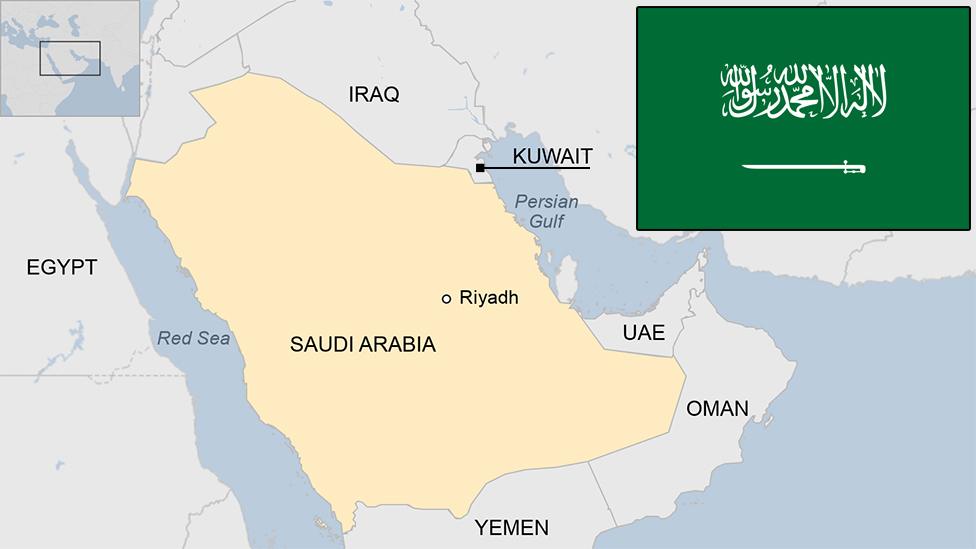Saudi: Turbulent times for new King Salman
- Published
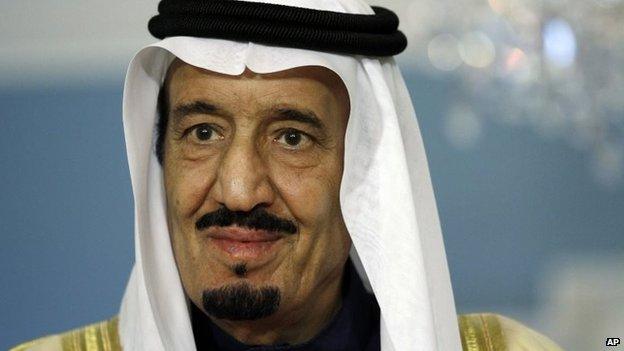
King Salman immediately pledged continuity and issued a call for unity
A few hours after acceding to the throne of Saudi Arabia, King Salman sent out a message via Twitter in which he asked God to help him "maintain security and stability" and "protect the kingdom from all evils".
In the normal course of events these remarks might have been dismissed as routine rhetoric. But on this occasion they reflect what are likely to be the priorities of the new king. For Saudi Arabia finds itself surrounded by challenges, external and internal.
The last thing that the ruling family needed at such a sensitive time was a messy succession process. So it moved with uncustomary speed to deal with a number of potentially contentious issues.
The immediate announcement that Salman's half-brother Prince Muqrin would step up from deputy crown prince to the position of heir to the throne resolved one of them.
There had been mounting speculation on social media and among Saudi Arabia analysts that the new king might favour his full brother Ahmed over Muqrin.
Then came the announcement that a new deputy crown prince had been named. He is the Interior Minister, Prince Mohammed bin Nayef, the first of the younger generation of princes to step onto the ladder that leads up to the throne of Saudi Arabia.
The expectation was that the contentious decision of which of the younger princes should be given this honour would be postponed for as long as possible. Suddenly it has happened.
Countering radicalisation
Clearly not all senior Saudis will be happy with the turn of events. Prince Ahmed himself must now know that he will never be king.
The sons of the late King Abdullah had looked well-placed to be leading candidates for the post of deputy crown prince - head of the National Guard Prince Mitaib in particular had been mentioned as a favourite.
But the differences of opinion within Al Saud will continue to be resolved in private and will not be allowed to undermine the solidarity of the family as a whole in a way that might threaten the kingdom's stability.
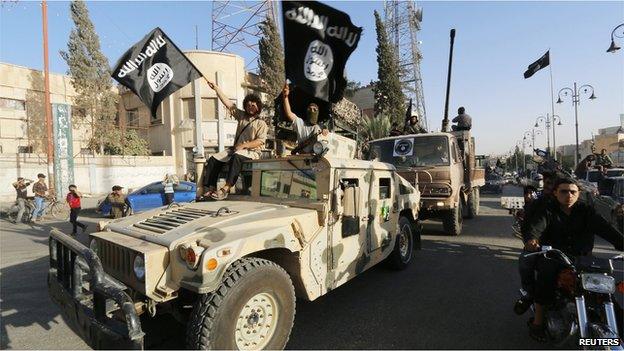
King Salman will continue to deter young Saudis from joining up with Islamic State
For maintaining security will be King Salman's chief priority. Hundreds of young Saudis have fought with Islamic State (IS) and are returning home inspired by jihadist ideology.
The policy of trying to prevent them carrying out attacks within Saudi Arabia will be accompanied by an intensified strategy of encouraging Islamic preachers and the teaching profession to warn young Saudis of the dangers of signing up to IS beliefs.
As part of the process of battening down the hatches King Salman is likely to be less inclined than Abdullah in seeking to intervene in the region's trouble spots.
While the kingdom will continue to support the Syrian opposition, for example, it might now look more favourably than in the past on initiatives that include a transitional solution that sees some members of the Assad regime remaining in power.
Likewise in Iraq, King Salman will remain committed to the anti-IS coalition but will also stand by Abdullah's refusal to commit troops there. The view among Saudi leaders is that the chief task of the armed forces is to protect the country's borders.
Indeed extra forces are likely to be sent to the southern border with Yemen. The recent rapid expansion of the Houthis, allegedly with support from Iran, at the expense of the Saudi-backed Yemeni government, is of increasing concern to the kingdom.
Then there is the continuing danger stemming from al-Qaeda activity in Yemen.
Civil rights
On the domestic front one should not expect major changes. King Salman is believed to be less in favour than his predecessor of political and social reform.
He is not likely to undermine the measures of the late king, but it would be a major surprise if women won the right to drive during the Salman monarchy.
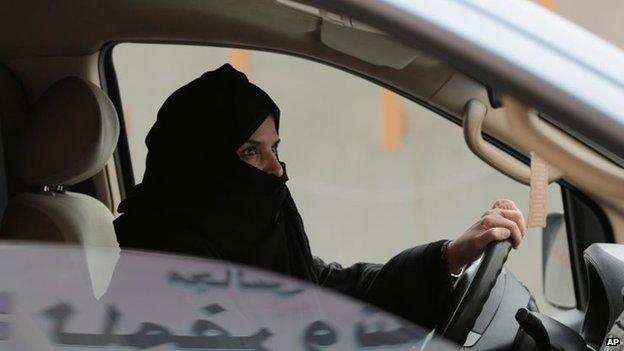
Saudi women have long protested against the ban on women drivers
Nor should one expect changes in policy that would appease critics of Saudi Arabia's human rights performance.
The elderly king will not be interested in risking a clash with the powerful religious establishment by trying to persuade them to agree to such amendments to Islamic law as would be necessary to make such changes.
A question mark hangs over the kingdom's oil policy. Will Saudi Arabia continue with its controversial policy of refusing to lower production - a move that has led to the global price collapsing?
The confirmation of Petroleum Minister Ali Naimi in his post suggests that it will. The longer that Saudi Arabia and other oil exporters can live with low prices, the thinking in Riyadh goes, the tougher the conditions will be for the North American shale oil and gas industry which is eating away at OPEC's market share.
So, some major changes and surprises have been seen at the top. But the underlining message seems to be that for Saudi Arabia under King Salman it will be pretty much business as usual - as long as the leadership succeeds in protecting the kingdom "from all evils".
Gerald Butt, a former BBC Middle East correspondent, is a regional analyst for Oxford Analytica and Petroleum Policy Intelligence
- Published23 January 2015
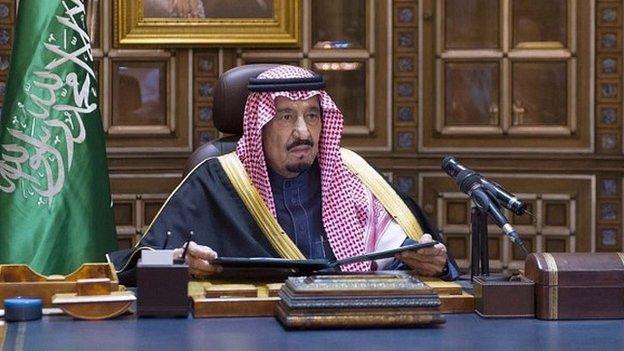
- Published23 January 2015
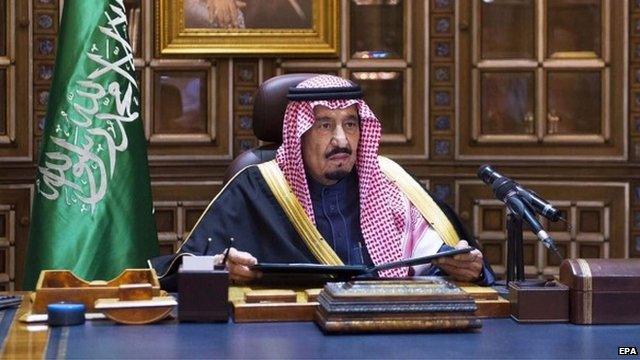
- Published23 January 2015
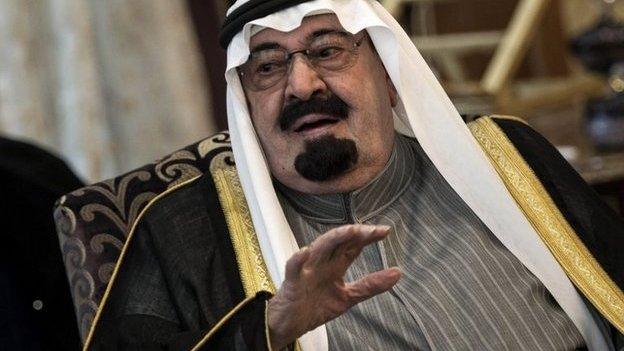
- Published30 May 2014
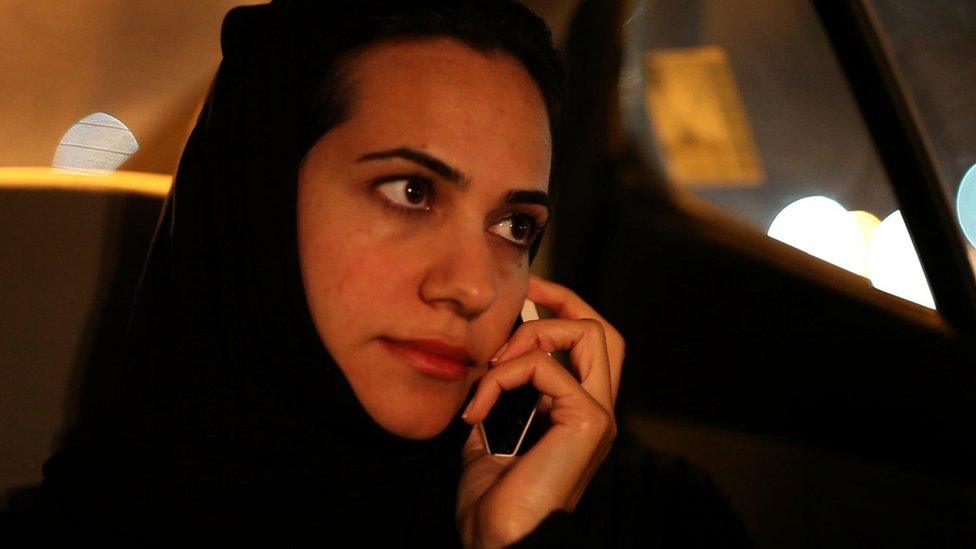
- Published10 March 2020
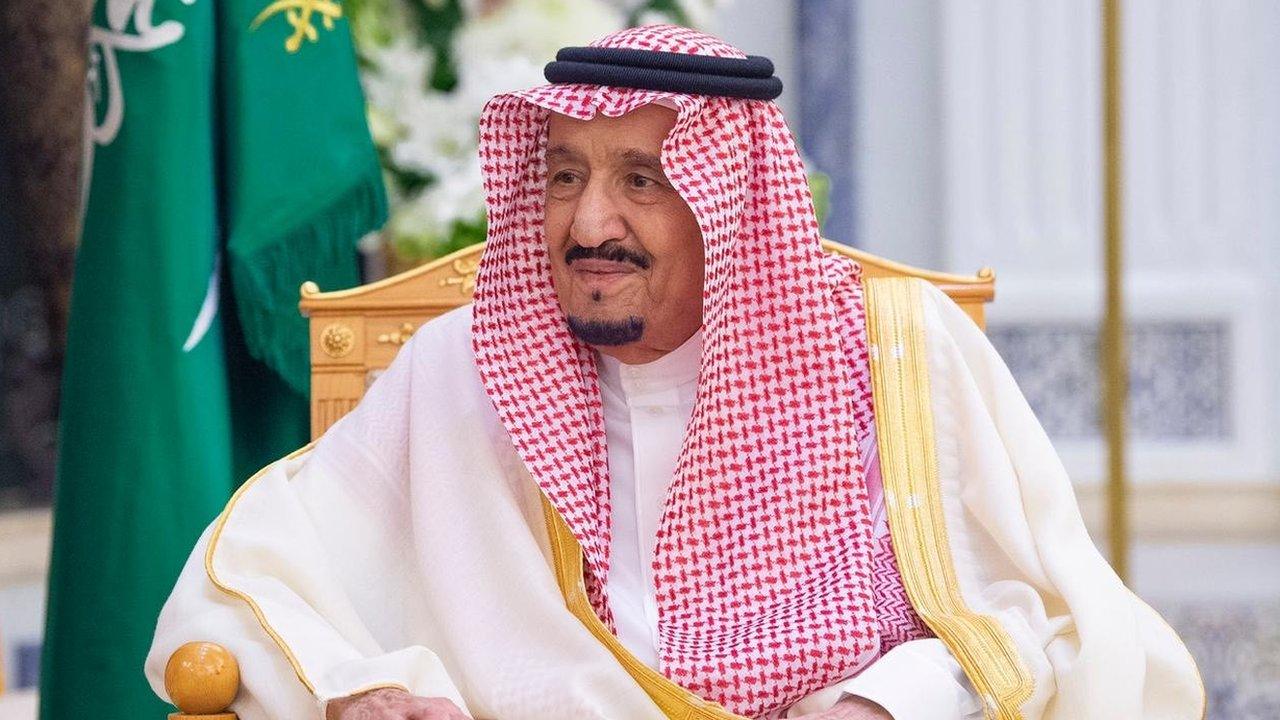
- Published29 August 2023
